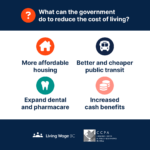Region braces for slower economy in 2024 and faces similar challenges: chamber executive director
The other shoe is expected to drop this year for the provincial economy as slower economic growth is predicted but the West Kootenay region could still find its glass slipper.
Like many jurisdictions in Canada, B.C. is experiencing the impacts of a slowing global economy and high interest rates, with the real gross domestic product in B.C. estimated to grow by only 0.5 per cent in 2024 — a lower forecast than the Province’s projections.
While the impact of past Bank of Canada interest rate hikes has not fully been felt, housing affordability and supply remain challenges, and the rate of inflation still hovers around three per cent (above the Bank of Canada annual goal of two per cent).
Even so, it appears the regional economy is trending in the right direction, said Nelson and District Chamber of Commerce executive director Tom Thomson, but there will be some struggles through 2024.
“Nelson and area has always been resilient when it comes to economic slowdowns,” he explained. “We have done our best to ‘Think Local First Buy Local,’ support local artisans and producers and support our small local and regional businesses, but it was a challenge for sure.”
He said the impact of rising interest rates and less disposable income could be felt throughout the year.
“Nelson is still a desirable place to visit and, thanks to a ‘better’ forest fire season, we had a relatively good summer and fall for visitation. One thing that could be noted, however, is there was not as much indirect spending at local stores, restaurants, or tourist amenities,” Thomson pointed out. “We believe that is directly related to rising interest rates and subsequent rising mortgage rates for many families.”
Filling the ranks
Staffing remained a big problem for regional businesses last year and it will likely continue this year, said Thomson, with the effects of the pandemic still being felt.
During the COVID pandemic the staffing issue was compounded by business uncertainty and government supports keeping people at home and out of the workforce. There were more people looking for work in 2023 and fewer jobs going unfilled, he explained.
“It can still be a problem recruiting mid- to senior-level staffing positions if applicants are coming from out of the area due to the tight housing market,” said Thomson. “Employers still tell us stories about quality candidates applying and wanting to relocate, but some are unable to find accommodation.”
On the horizon
There are several projects underway or just completed that should help the foundation of the economy in the region, said Thomson.
He pointed to the Nelson Health Campus — which will offer 75 long-term care beds to patients whose needs require a regular, long-term medical care — as a community service building which will house mental health and substance use services along with a variety of public health and community resources.
There is also the Waterview project by the Vendure Group — along on Lake Street/Vernon Street — and the Shoreline project by Culos Development on Nelson’s waterfront.
“Housing is a real need in our region, so any projects are welcomed. It was nice to see the student housing at Silver King Campus completed last year,” Thomson said.
Be prepared
The biggest challenge for the region’s economy is simply the rising cost of doing business, said Thomson.
“There are cost pressures coming at (business) people every day. It could be their line of credit rates going up, or taxes at all levels, rising utility rates, rising wages and related employee expenses like paid sick days, increasing CPP and other payroll expenses, supply chain issues, to rising costs of deliveries, products, services and maybe rent,” he said.
In addition, businesses and the community have also felt the impact of the addiction and mental health challenges amongst a growing street culture.
“We can all advocate for better supports and services for this vulnerable population and to ensure we find the right locations,” he said. “We can all help out by supporting our local stores and businesses as much as possible and the chamber will continue to advocate to all levels of government on those challenges. There is only so much a small business owner can handle until they finally say enough is enough.”



























Comments